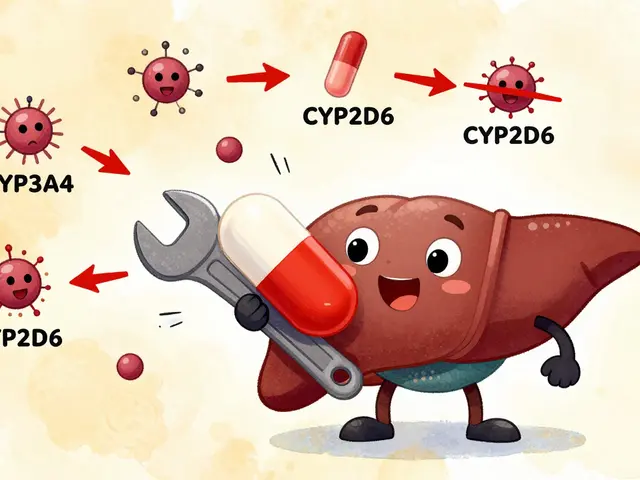Nausea remedies: fast, practical ways to stop an upset stomach
Nausea can hit suddenly and wreck your plans. If you need relief now, sit up, get fresh air, loosen tight clothes and take slow deep breaths. Small, calm steps usually help more than panicking. Below are simple home fixes, over-the-counter and prescription options, plus when you should see a clinician.
Quick fixes at home
Ginger works for many people — try ginger tea, ginger candies, or a small piece of crystallized ginger. Peppermint tea or sucking a peppermint candy can calm the stomach too. Sip clear fluids slowly (water or an oral rehydration drink) to avoid dehydration. Apply a cool compress to your forehead and use acupressure: press gently on the inner wrist (P6 point) for a few minutes.
Eat bland foods if you feel able: toast, plain rice, bananas, or applesauce. Keep portions tiny and eat often rather than forcing a full meal. Avoid greasy, spicy, or very sweet foods until your stomach settles. For motion sickness, face forward, focus on the horizon, avoid screens and strong smells, and sit where the ride is smoothest.
Over-the-counter and non-prescription options
For mild to moderate nausea, OTC choices include antihistamines like dimenhydrinate or meclizine for motion-related nausea, and bismuth subsalicylate for some stomach upset. Antacids can help if reflux or heartburn is the cause. Scopolamine patches are available for motion sickness but check warnings — they can cause drowsiness and dry mouth. Ask a pharmacist if you’re unsure which option fits your situation.
Herbal and dietary supplements such as peppermint oil capsules or small doses of ginger are generally safe for short-term use, but avoid combining supplements with medicines without checking interactions. If you’re breastfeeding or pregnant, check with a clinician before trying supplements.
Prescription antiemetics are for severe or persistent nausea. Drugs like ondansetron, promethazine, or metoclopramide are commonly used when home measures fail or for chemotherapy, severe gastroenteritis, or post-operative nausea. These require a prescriber because they can have side effects or interact with other meds.
Pregnancy requires special care. Mild nausea often responds to lifestyle measures and pyridoxine (vitamin B6) with doxylamine, which is a standard first-line combo for many pregnant patients. Severe vomiting (hyperemesis gravidarum) needs medical attention and possible IV fluids.
When to see a doctor
Seek urgent care if vomiting goes on for more than 24 hours, if you can’t keep fluids down, if you see blood in vomit, have severe abdominal pain, high fever, fainting, confusion, or signs of dehydration (very little urine, dizziness, dry mouth). If nausea follows a head injury, stroke symptoms, or severe chest pain, go to the emergency room immediately.
Mix and match remedies: start gentle (ginger, sips of fluids), add OTC if needed, and get medical help for severe or persistent problems. Keep a short list of triggers and remedies that work for you so you can act fast next time nausea shows up.




